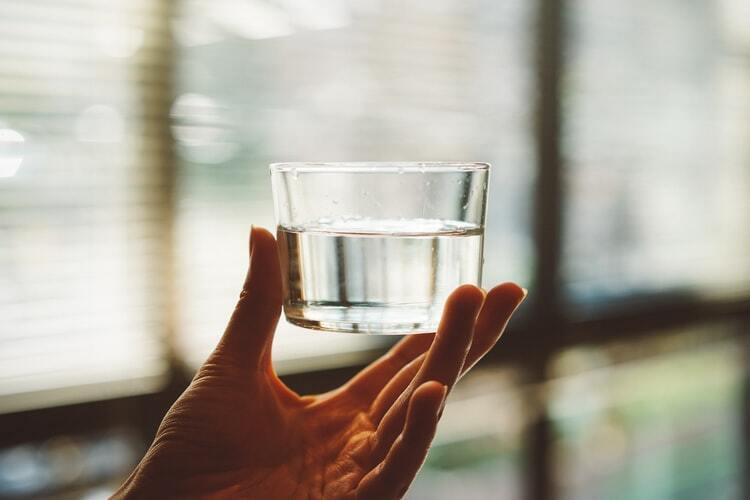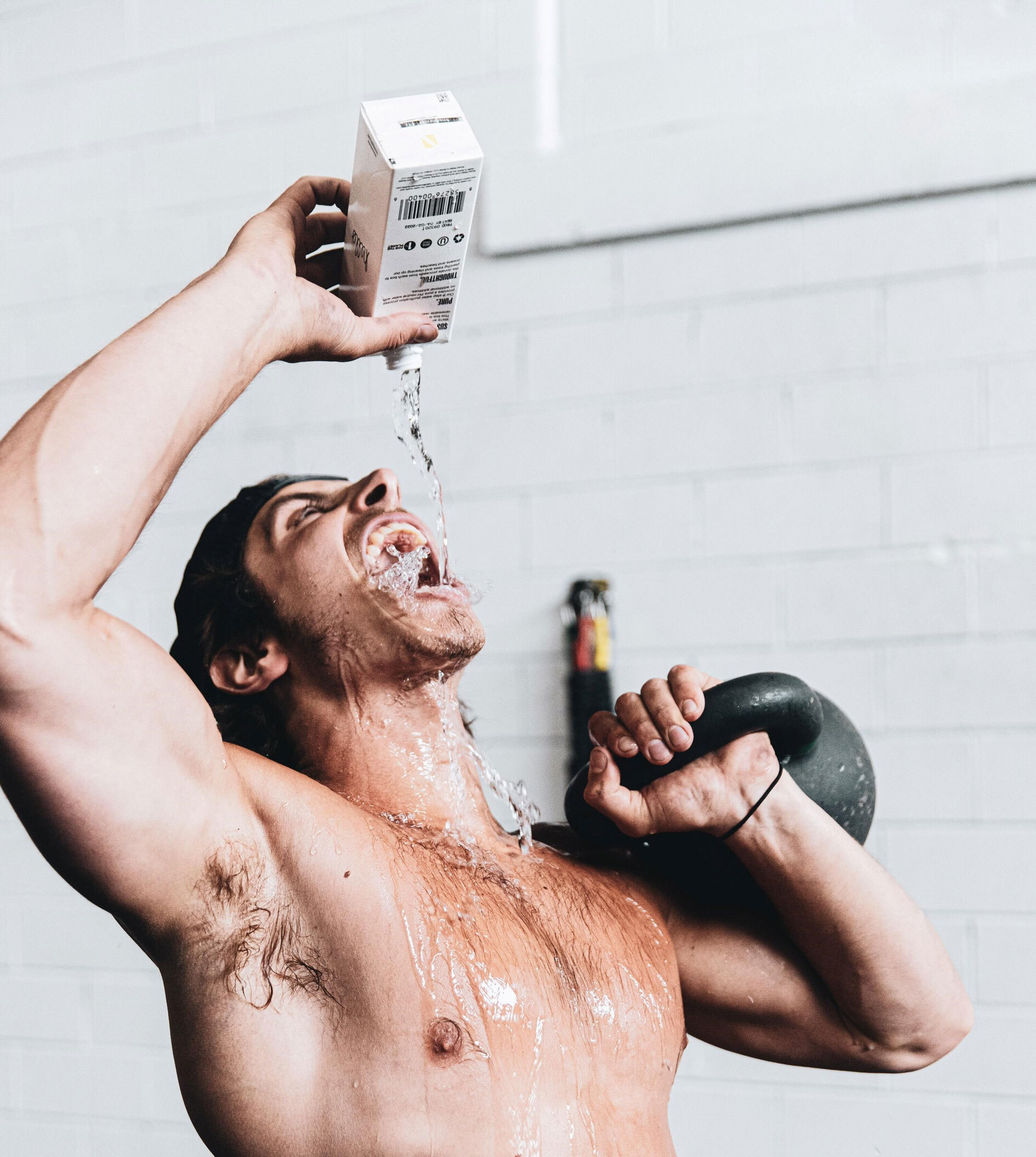Our body is made up approximately of 60% water. You are constantly losing water from your body, primarily through urine and sweat. To prevent dehydration, you should drink adequate amounts of water. There are many different opinions about how much water you should drink each day. Health organizations usually recommend eight glasses a day, which is about two liters. However, some believe that you should drink water constantly during the day, even when you are not thirsty. As with most things, this also depends on the individual. Many factors (internal and external) ultimately affect your need for water. This blog talks about some water intake studies and explains how to match water intake to individual needs easily.

Does water intake affect energy levels and brain function?
Many people claim that if you do not stay hydrated during the day, your energy levels and brain function begin to decline. There are many studies that confirm this. In women, fluid loss of 1.36% after exercise impairs mood and concentration and increases the frequency of headaches. Mild dehydration (1-3% of body weight) caused by exercise or heat can harm many other aspects of brain function. Keep in mind that only 1% of body weight is a significant amount. This happens primarily when you sweat a lot. Mild dehydration can also negatively affect physical performance, leading to reduced endurance.
Does consuming a lot of water help you lose weight?
There are many claims that increased water intake can reduce body weight by speeding up metabolism and reducing appetite. Drinking half a liter of water can temporarily increase metabolism by 24-30%. It is estimated that the intake of two liters in one day increases energy consumption by about 96 calories per day. In addition, it may be helpful to drink cold water, as your body will need to burn more calories to heat the water to body temperature. Drinking water about half an hour before a meal can also reduce the number of calories you end up consuming, especially in older individuals. One study found that people who drank half a liter of water before each meal lost 44% more weight over 12 weeks, compared to those who did not. All in all, it seems that consuming adequate amounts of water, especially before meals, can have a significant benefit for weight loss, especially in combination with a healthy diet, and you can find healthy recipes on our Infinity Fit app. Moreover, adequate water intake has a number of other health benefits.
Does more water help prevent health problems?
Several health problems reportedly respond well to increased water intake:
- Constipation: Increased water intake can help with constipation, which is a very common problem.
- Cancer: Some studies show that those who drink more water have a lower risk of bladder and colon cancer, although other research has found no effect Kidney stones:
- Increased water intake may reduce the risk of kidney stones Hydration against acne and for clean skin:
- There are many reports on how water can help hydrate the skin and reduce acne. So far, no study has confirmed or denied this.
Are other liquids counted in the total amount of liquid?
Plain water is not the only drink that contributes to your fluid balance. Other drinks and foods can have a significant impact. One myth is that decaffeinated drinks, such as coffee or tea, do not help with hydration, because caffeine is a diuretic. In fact, studies show that the diuretic effect of these drinks is very weak. Most food is also full of water. Meat, fish, eggs, especially fruits and vegetables contain significant amounts of water. Together, coffee or tea and water-rich foods can help you maintain fluid balance. Maintaining water balance is essential for your survival. For this reason, your body has a sophisticated system for regulating when and how much you drink. When your total water falls below a certain level, thirst kills us. It is controlled by breathing-like mechanisms – you don’t have to consciously think about it.

Most people probably don’t need to worry about water intake. The thirst instinct is very reliable. Certain circumstances may require increased water intake. It is most important at the time of increased sweating. This includes exercise and warm weather, especially in dry climates. On our Infinity Fit app, you can find a handful of exercises, programs and combinations of them, in order to turn your sweat into positive changes on the body. If you sweat a lot, be sure to replace the lost fluid with water. Athletes who do very long, intense exercises can also replenish electrolytes with water. Your need for water also increases during breastfeeding, as well as several illnesses such as vomiting and diarrhea. Older people may need to consciously watch their water intake because the mechanisms of thirst may not work in old age.
How much water is best?
At the end of the day, no one can tell you exactly how much water you need. It depends on the individual. Try experimenting to see what works best for you. Some people may function better when they ingest more water than usual, while for others it only results in more frequent visits to the toilet. If you want things to be simple, these guidelines should apply to most people:
- When you want to drink, drink.
- When you are no longer thirsty, stop.
- During high heat and exercise, be sure to drink enough to make up for lost fluid.
- For more texts and useful information like this, follow our blog.
